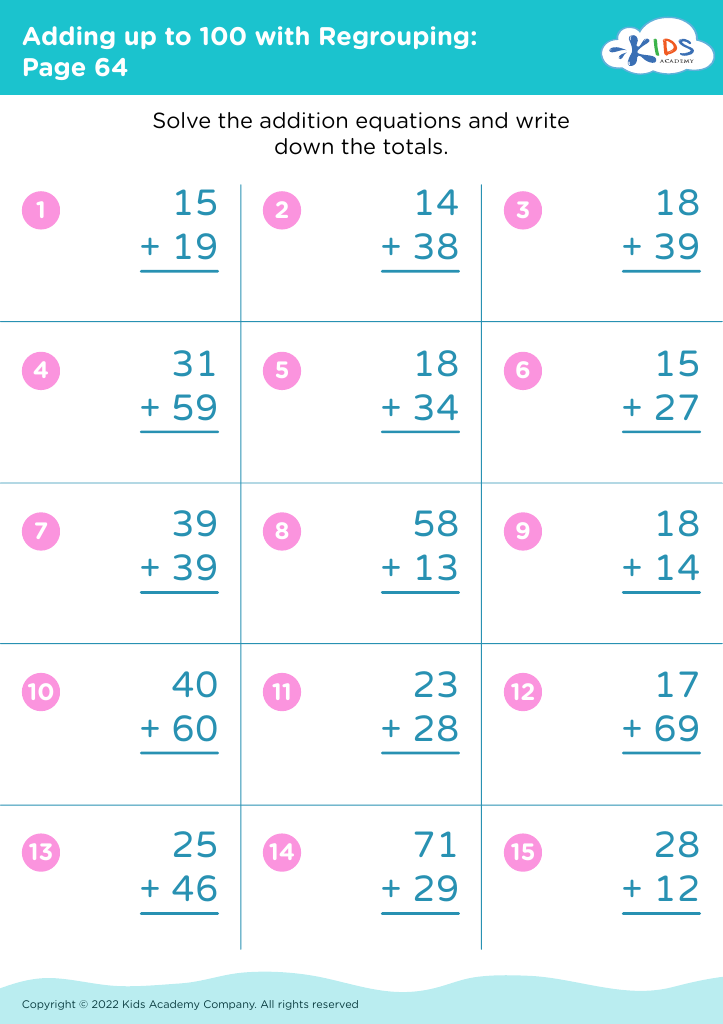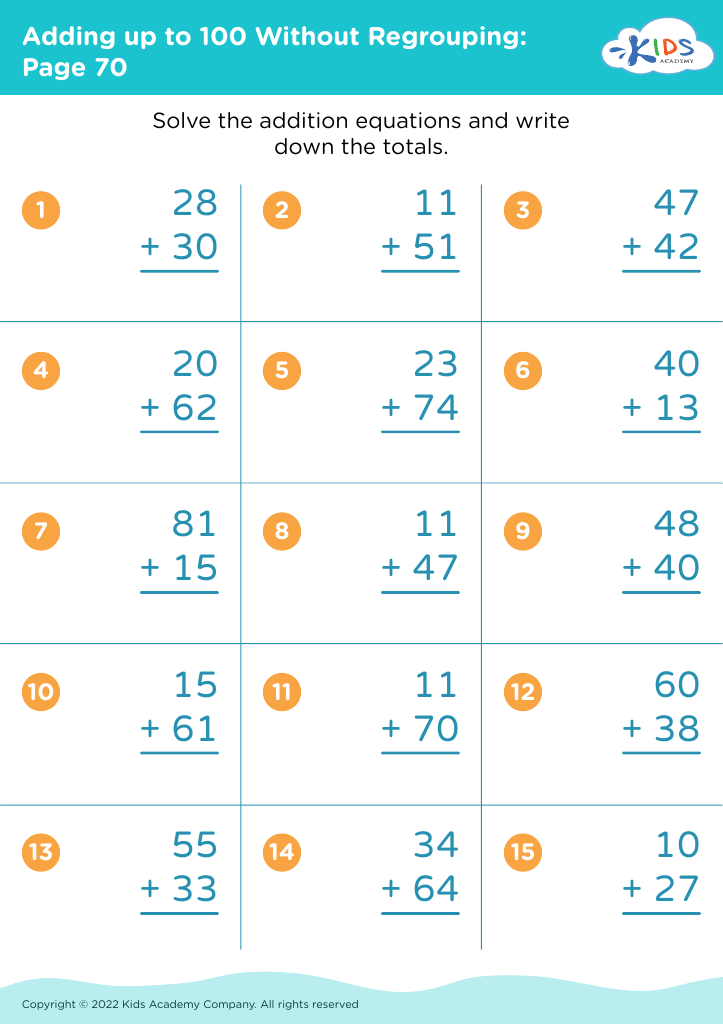Reinforce math concepts Addition & Subtraction Worksheets for Ages 4-8
3 filtered results
-
From - To
Boost your child's math skills with our specially designed addition and subtraction worksheets for ages 4-8. Our engaging printables provide a fun and interactive way for young learners to master basic math concepts. With a wide range of exercises and colorful illustrations, kids can practice adding and subtracting to build a strong foundation in mathematics. These worksheets are perfect for reinforcing classroom lessons or homeschooling, helping children develop confidence and proficiency in math. Join Kids Academy and support your child's learning journey today with our high-quality, educational resources. Visit us online to get started!
Parents and teachers should prioritize reinforcing math concepts like addition and subtraction for children aged 4-8 because these foundational skills form the basis for future mathematical learning. At this crucial developmental stage, young minds are highly receptive, and establishing a strong arithmetic foundation can enhance cognitive development, problem-solving abilities, and logical thinking. Addition and subtraction are not just academic exercises; they are practical life skills that children use in daily activities, such as sharing toys or dividing snacks, enabling them to understand the practical application of numbers.
Engaging early learners with these concepts promotes confidence and reduces math anxiety later in life. When children grasp addition and subtraction, they’re better prepared for more complex math topics, leading to better academic performance as they advance in school. Moreover, successfully tackling these early math challenges often fosters a positive attitude toward learning overall, encouraging a curious, growth-mindset approach.
Parents and teachers can make math concepts engaging through interactive games, colorful visuals, and everyday situations, transforming learning into a fun, rewarding experience. Building these skills early positions children for long-term success, not just academically but in problem-solving and critical thinking aspects of everyday life, making it a vital part of early education.
























